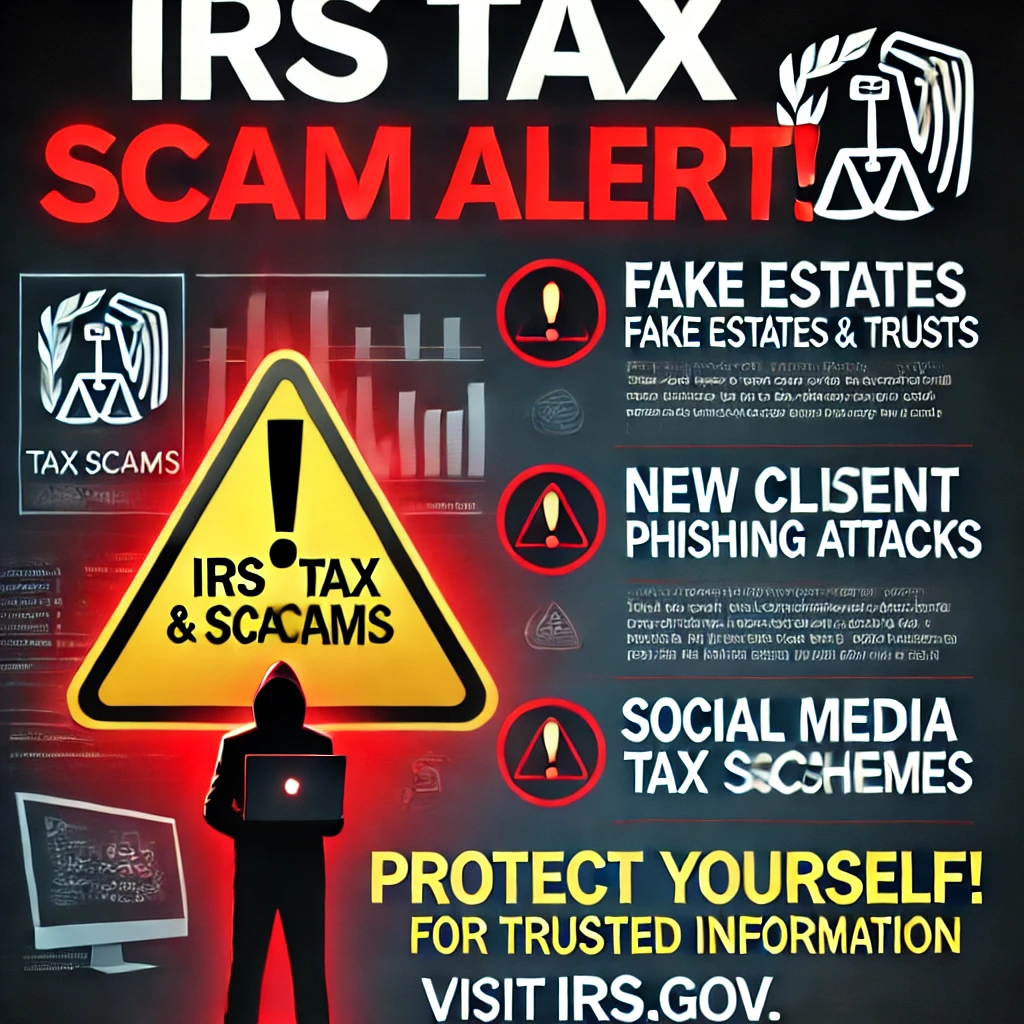Tax season is here, and while that means many Americans are busy filing returns, it also means scammers are working overtime to steal personal information, refunds, and even entire identities. The IRS has issued warnings about emerging tax scams, and if you’re not careful, you could be the next target.
In this guide, we’ll break down the most common tax scams, how they work, and—most importantly—how to protect yourself.
Common IRS Tax Scams to Watch Out For
Scammers have gotten more sophisticated, using emails, phone calls, social media, and even fake tax preparers to deceive taxpayers. Here are some of the most dangerous scams circulating this year:
1. Fake Estates & Trusts Scam
Fraudsters are filing tax returns using fictitious estates and trusts to claim massive refunds. They create fake documents to make it appear as though the taxpayer is owed a refund from a trust that doesn’t actually exist.
💡 How They Do It:
- Scammers convince individuals to file returns with fabricated trusts.
- They promise huge refunds using deceptive legal language.
- Once filed, they disappear, leaving the taxpayer responsible for any false claims.
🔴 Red Flag: If anyone promises you a huge refund for filing under a trust or estate you’ve never set up, it’s a scam.
2. “New Client” Phishing Attacks on Tax Preparers
This scam targets tax professionals, but it can still affect taxpayers if their accountant’s data is stolen. Cybercriminals pose as new clients looking for tax services, sending malicious email attachments or links that infect the preparer’s system.
💡 How They Do It:
- A fake “client” reaches out to a tax professional.
- They send an attachment containing malware disguised as tax documents.
- Once opened, the scammer gains access to client data—Social Security numbers, bank info, and more.
🔴 Red Flag: Tax preparers should never download attachments from unknown senders and should use secure client portals for document exchange.
3. Social Media Tax Fraud Schemes
Social media is full of bad tax advice. Some scammers are encouraging people to falsify their tax returns—claiming fake dependents, false withholdings, or exaggerated deductions—to get bigger refunds.
💡 How They Do It:
- Fraudsters post “hacks” or “loopholes” to trick people into altering tax filings.
- Some pose as tax experts offering “refund maximization” for a cut of the return.
- If caught, the taxpayer—not the scammer—faces fines, penalties, and even criminal charges.
🔴 Red Flag: If someone on social media claims they found a “secret tax refund trick”, they’re either scamming you or setting you up for fraud charges.
How to Protect Yourself from IRS Tax Scams
Scammers are evolving, but so are the ways you can stay protected. Here’s what you need to do to safeguard your tax return and personal information:
✅ Know How the IRS Contacts You
- The IRS will NEVER call, email, or text you asking for personal information.
- Legitimate IRS contact typically comes via mail first, not random phone calls.
✅ Verify Your Tax Preparer
- Make sure they have a Preparer Tax Identification Number (PTIN).
- Be wary of anyone who guarantees a big refund before even reviewing your documents.
✅ Use Official IRS Resources
- Visit IRS.gov for accurate tax information.
- Check the IRS’s Dirty Dozen Scams List every year to stay updated.
✅ Don’t Click Suspicious Links
- Avoid opening attachments from unknown sources.
- If an email looks IRS-related but seems off, verify it by logging into your IRS account directly—don’t click any links.
What to Do If You’re a Victim of a Tax Scam
If you suspect you’ve fallen for a tax scam, act fast:
1️⃣ Report It to the IRS – Use IRS Form 14039 if you think your identity has been stolen.
2️⃣ Monitor Your Tax Account – Create an online IRS account at IRS.gov to track your tax filings and refund status.
3️⃣ Freeze Your Credit – If you suspect identity theft, contact Equifax, Experian, and TransUnion to place a fraud alert.
4️⃣ Be Proactive for Next Year – Consider filing early to prevent scammers from using your information.
Final Thoughts: Stay Informed & Stay Safe
Scammers are relentless, but you can outsmart them by staying informed and cautious. Always question unexpected IRS-related messages, verify your tax preparer, and never share personal details with unverified sources.
📢 Spread the word! Share this article to protect your family and friends from tax scams this season! 💰🚫 #TaxScam #IRSWarning #StaySafe


